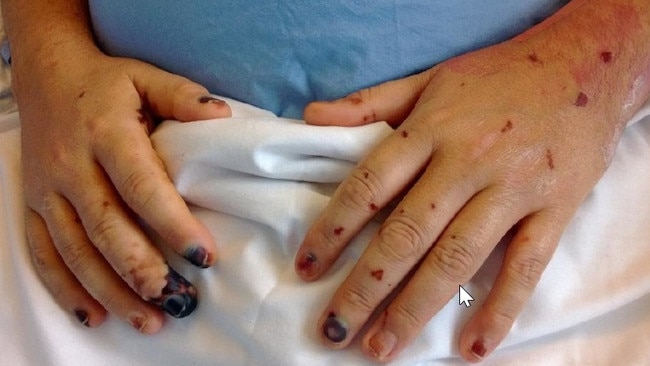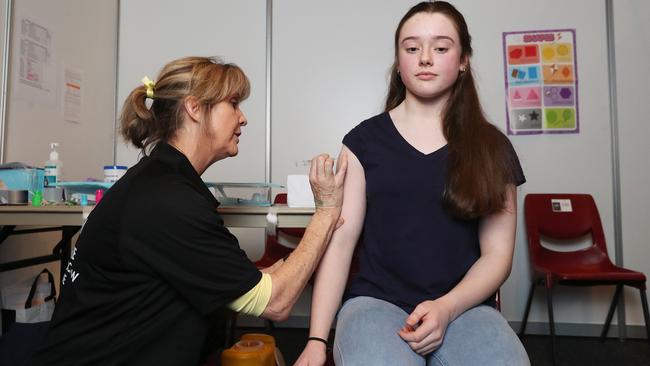Meningococcal warning: Here are the symptoms to look out for
Health officials are expecting a bad Meningococcal season and we have already had one case locally and two deaths here last year. They’re urging people to know these lesser-known symptoms.

Central Coast people have been warned to familiarise themselves with the symptoms of meningococcal disease as NSW Health issues a warning of a potentially bad season ahead.
NSW Health is urging people to be alert to lesser known signs of the disease with 21 cases already reported this year and the peak period for the disease still more than a month away.
The Central Coast has already had one confirmed case this month when a 65-year-old woman was hospitalised with the W strain of the disease.

Last year two people died on the Central Coast from the infection, including a 19-year-old woman and a 38-year-old woman.
NSW Health’s Director of Communicable Diseases Dr Vicky Sheppeard said cases normally started to increase towards the end of flu season when people’s immune systems are weaker from viruses.
“Meningococcal disease is a rare but serious bacterial infection that can cause death within hours and it’s hard to identify, so the more symptoms people know about, the better,” Dr Sheppeard said.

“Often it can mimic other common illnesses, so be aware nearer spring that nausea symptoms, vomiting, neck stiffness, joint pain, light sensitivity, or a sudden fever, could be something else.
“Most people normally associate meningococcal disease with a rash of red-purple spots or bruises but in some cases a rash doesn’t appear, or it could be the last symptom to take shape.”

Meningococcal infection does not spread easily. It is spread by secretions from the nose and throat of a person who is carrying the bacteria.
Close and prolonged contact is needed to pass it on.
“It more commonly occurs in people aged between 15 to 24 years as they tend to be involved in more intimate social activities, such as kissing, and children aged under 5 years, but it can affect anyone,” Dr Sheppeard said.

GET VACCINATED
Vaccination is the best means of protection against meningococcal disease.
Vaccination for meningococcal disease types A, C, W and Y is available on the National Immunisation Program for infants at 12 months of age and adolescents in Year 10.
Any adolescents aged 15 to 19 years who miss the vaccine in school are eligible for a free vaccine from their GP.
However, as there are several strains of meningococcal disease, and vaccination does not cover all strains — even vaccinated people need to be on the lookout for symptoms.

The latest Annual Immunisation Report shows vaccination rates in NSW are at their highest level ever, with close to 95 per cent of five year olds fully vaccinated.
The NSW Government will invest around $130 million in the 2019-20 Immunisation Program Budget, including Commonwealth and State vaccines.


